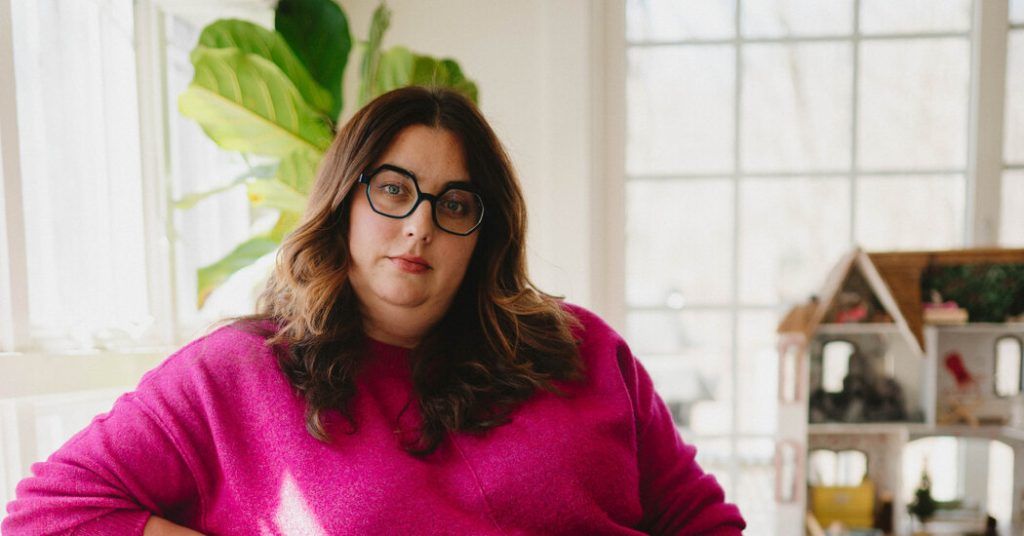In the age of Ozempic, a new weight-loss drug that is gaining popularity, Virginia Sole-Smith, a self-proclaimed “fat activist,” is simultaneously inspiring and infuriating her followers. Sole-Smith, known for her outspoken advocacy for body positivity and rejection of diet culture, has found herself at the center of controversy as some of her followers struggle to reconcile her beliefs with her decision to try the drug. Ozempic, a weekly injection that has been approved for use in certain patients with obesity, has stirred up debate in the body positivity community, with some arguing that taking such a drug goes against the very principles of self-acceptance and embracing one’s body as it is.
Sole-Smith’s decision to try Ozempic has sparked a conversation about the complexities of body acceptance and the pressures that individuals face in a society that values thinness above all else. While some argue that taking a weight-loss drug reinforces harmful stereotypes and perpetuates the idea that thinness equals worth, others see it as a personal choice that should be respected, regardless of one’s stance on body positivity. Sole-Smith herself has acknowledged the tension between her beliefs and her decision to try the drug, emphasizing that her choice is a personal one and does not diminish her commitment to advocating for body diversity and self-acceptance.
The debate surrounding Sole-Smith’s use of Ozempic raises important questions about the intersections between health, weight, and body image. While the body positivity movement has made significant strides in challenging traditional beauty standards and promoting self-love regardless of size, the reality is that obesity can have serious health consequences and individuals may choose to pursue weight loss for a variety of reasons. The decision to take a weight-loss drug like Ozempic is a deeply personal one, and it is important to approach these discussions with empathy and understanding, rather than judgment or criticism.
As the conversation around Sole-Smith’s use of Ozempic continues to unfold, it is crucial to remember that there is no one-size-fits-all solution when it comes to health, weight, and body acceptance. Each individual’s journey is unique, and what works for one person may not work for another. It is important to recognize and respect the diverse experiences and perspectives within the body positivity community, and to support each other in making informed and empowered decisions about our own bodies and health. Sole-Smith’s decision to try Ozempic serves as a reminder that self-acceptance and self-care can look different for everyone, and that it is ultimately up to each individual to determine what is best for them.
In a society that often equates thinness with beauty and success, it can be challenging to navigate the complexities of body image and self-worth. The body positivity movement has empowered individuals to challenge these harmful norms and embrace their bodies as they are, but it is also important to recognize that health is a multifaceted and deeply personal issue. While some may choose to pursue weight loss through methods like diet, exercise, or medication, others may prioritize self-acceptance and self-care above all else. Ultimately, the key is to approach these conversations with compassion and understanding, recognizing that each individual’s journey is valid and deserving of respect.
As the conversation around Virginia Sole-Smith’s use of Ozempic continues to spark debate and reflection within the body positivity movement, it is important to come together as a community to support each other in our journeys toward self-acceptance and empowerment. By acknowledging the complexities of health, weight, and body image, we can work towards creating a more inclusive and supportive environment for all individuals, regardless of their size or appearance. Ultimately, the goal of the body positivity movement is to promote self-love and acceptance, while also recognizing that everyone’s path to health and happiness may look different. It is through open and honest dialogue, as well as a commitment to empathy and understanding, that we can continue to challenge harmful stereotypes and strive towards a more inclusive and equitable society for all.


